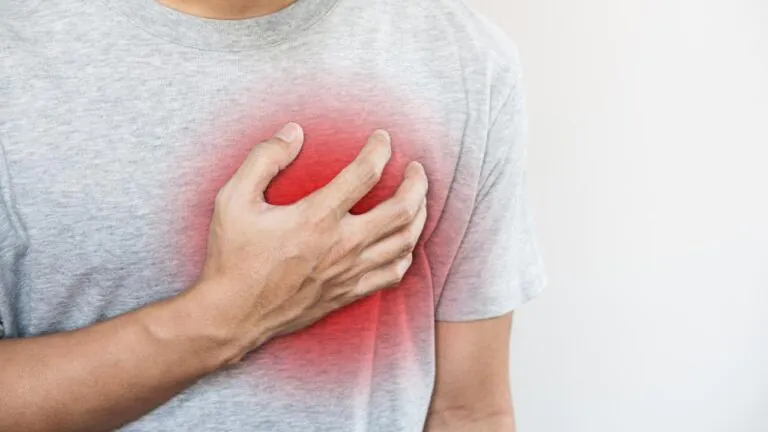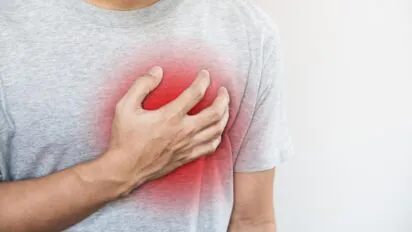All content on this website is for informational purposes only, and is not intended to be a substitute for professional medical advice, diagnosis or treatment. If you have questions about your medical condition or treatment, always seek advice of your physician or other qualified healthcare professional.
Cardiovascular diseases
As a global pharmaceutical company committed to improving patients’ lives, Acino aims to inform and provide actionable advice to help you take control of your cardiovascular health.
Cardiovascular diseases, or diseases of heart and vessels, have collectively remained the leading causes of death worldwide. (1)
0%
of cardiovascular deaths are due to heart attack and stroke (1)
0/3
of all global deaths are due to diseases of heart and vessels (1)
Cardiovascular diseases are disorders involving the heart and blood vessels. They include atherosclerotic diseases, in which blood vessels are progressively obstructed by fatty deposits called plaques. There are different types of atherosclerotic diseases according to which blood vessels are obstructed:
- Heart attack, or coronary heart disease, affects the coronary arteries, which supply blood to the heart.
- Stroke, or cerebrovascular disease, affects the vessels supplying blood to the brain.
- Peripheral artery disease affects the vessels supplying blood to the legs.
Other cardiovascular diseases include:
- Heart failure, occurring when heart is unable to pump properly.
- Valvular heart diseases, diseases of the heart muscle.
Learn to recognize early warning signs and symptoms that might indicate the presence of cardiovascular diseases. Early detection can make a difference in managing and treating these conditions effectively, and save lives.
Heart attack (1)
- Chest pain or discomfort in the centre of the chest; and/or
- Pain or discomfort in the arms, the left shoulder, elbows, jaw, or back
- Other symptoms: shortness or difficulty in breathing; nausea or vomiting; light-headedness or faintness; cold sweat; turning pale
Stroke (1)
- Sudden weakness of the face, arm, or leg, most often on one side of the body
- Other symptoms include sudden onset of numbness of the face, arm, or leg, especially on one side of the body; confusion, difficulty speaking or understanding speech; difficulty seeing with one or both eyes; difficulty walking, dizziness and/or loss of balance or coordination; severe headache with no known cause; and/or fainting or unconsciousness


If you are experiencing symptoms (see above mentioned symptoms section), seek medical care immediately. (1)
Call an ambulance immediately if you have chest pain for more than 10 minutes.
Do not travel to the hospital yourself as your nearest hospital may not be equipped to treat a heart attack 24/7. (2)
It is important to detect cardiovascular disease as early as possible so that management with counselling and medicines can begin. (1) If you have concerns about your risk of developing a cardiovascular disease or any other health issues, speak with your doctor or healthcare provider.
Depending on the condition, treatments for cardiovascular disease vary, and can include (1):
Basic medicines such as aspirin, beta-blockers, angiotensin-converting enzyme inhibitors, and statins.
Medical devices such as pacemakers, prosthetic valves, implantable cardioverter-defibrillators (ICDs), and patches for closing holes in the heart.
Sometimes, surgical operations are required to treat CVDs.
How to prevent health burden?
The greatest gift you can give yourself and your loved ones is a healthy you. Take care of your body and focus on living the highest quality of life you can through your daily choices.
At Acino, we have longstanding knowledge which we want to share with you. Explore our materials to raise your awareness, and make decisions to stay healthy and improve your quality of life.
Leading metabolic, and behavioral risks include (3):
- high systolic blood pressure
- high LDL cholesterol
- high BMI
- high fasting blood glucose
- kidney dysfunction
- dietary risks
- smoking
- secondhand smoking
- high alcohol use
- low physical activity
CVD is largely avoidable: eliminating health risk behaviors would prevent at least 80% of CVDs. (2)
Cessation of tobacco use, reduction of salt in the diet, eating more fruit and vegetables, regular physical activity and avoiding harmful use of alcohol have been shown to reduce the risk of cardiovascular disease. (1)
In addition, drug treatment of hypertension, diabetes and high blood lipids are necessary to reduce cardiovascular risk and prevent heart attacks and strokes among people with these conditions. (1)
References
1. World Health Organization, Fact Sheets – Cardiovascular diseases (CVDs). Published 11 June, 2021. Accessed 27th of July 2025
2. The European Society of Cardiology. Heart Disease. Healthy-Heart.org. https://www.healthy-heart.org/your-heart/what-is-heart-disease/. Accessed 29th of July 2025
3. Mensah, G, Fuster, V, Murray, C. et al. Global Burden of Cardiovascular Diseases and Risks, 1990-2022. JACC. 2023 Dec, 82 (25) 2350–2473. https://doi.org/10.1016/j.jacc.2023.11.007
* Downloadable materials
This material is intended solely for general information. It is not to be used for treatment or diagnostic purposes, but rather for discussion with the patient’s own physician. The information contained herein is neither intended to dictate what constitutes reasonable, appropriate or best care for any given health issue, nor is it intended to be used as a substitute for the independent judgment of a physician for any given health issue.
Last updated: 29 July 2025
GLO-CV-07/2025-11